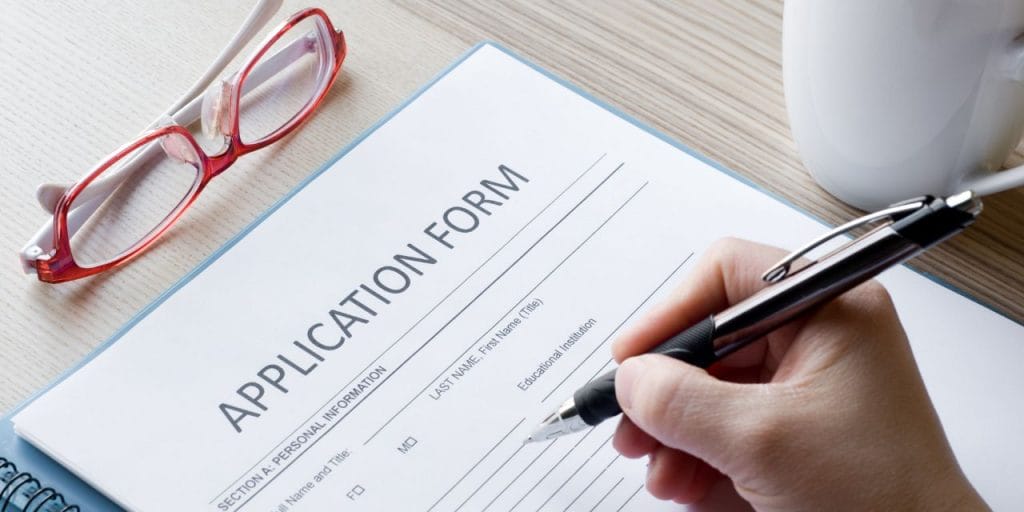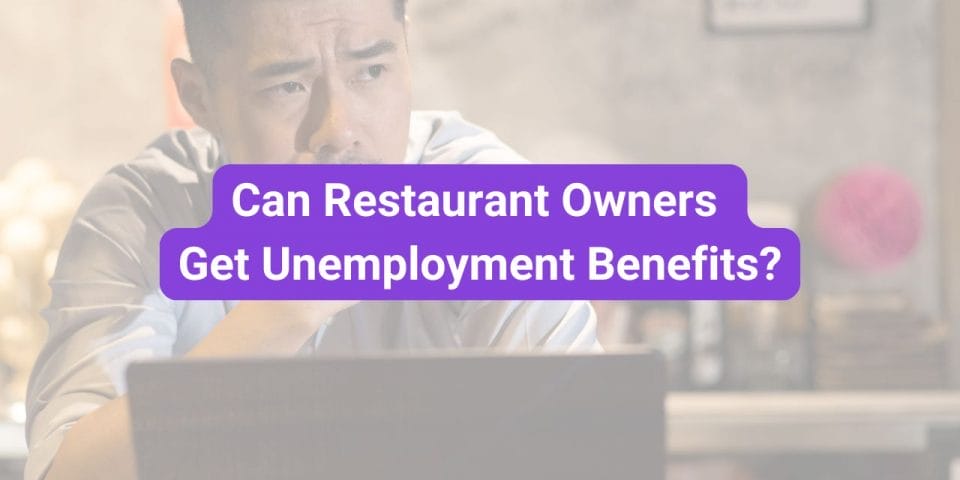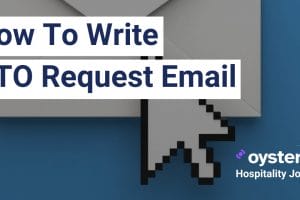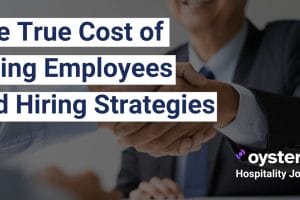The restaurant industry has faced unprecedented challenges in recent years, leaving many establishment owners grappling with financial uncertainty. Amid these difficulties, a pressing question arises: Can restaurant owners get unemployment benefits?
This guide dives into the eligibility criteria, application processes and alternative support options tailored for restaurant proprietors. Whether you’re navigating a temporary closure or significant income loss, this comprehensive resource will help you understand the benefits you may qualify for and how to access them.
Understanding Unemployment Benefits for Business Owners
Unemployment benefits have traditionally been reserved for employees who lose their jobs through no fault of their own. However, recent economic shifts and new legislation have expanded these programs to include self-employed individuals and business owners in certain circumstances.
Historically, self-employed individuals, including restaurant owners, were ineligible for unemployment benefits. But due to economic challenges, governments have reevaluated and updated these policies.
These changes highlight the growing recognition of small businesses’ critical role in the economy and the need to support entrepreneurs during tough times. For restaurant owners, who often operate with tight profit margins and face unique industry pressures, these updates offer a potential safety net during uncertain economic periods.
Eligibility Criteria for Restaurant Owners
Determining whether you qualify for unemployment benefits as a restaurant owner depends on several factors. While specific requirements vary by state, the following are common considerations:
- Closure or significant downsizing of your business due to economic conditions
- Major personal income loss from the business
- Direct involvement in daily restaurant operations
- Payment of unemployment insurance taxes in some cases
Eligibility can also depend on your business structure — whether it’s a sole proprietorship, a limited liability company (LLC) or a corporation — and the regulations in your state.
Types of Unemployment Programs Available
Restaurant owners exploring unemployment benefits should be aware of various programs that might apply to their situation. These programs have been developed or expanded to address the unique needs of business owners and self-employed individuals.
Traditional State Unemployment Insurance
While primarily designed for employees, some states allow business owners to claim benefits, especially if they’ve structured their businesses to include paying themselves a regular salary and contributing to unemployment insurance.
Disaster Unemployment Assistance (DUA)
DUA provides financial help to those who lose work or business operations due to major disasters. While it isn’t designed for economic downturns, it can be relevant when natural disasters affect the restaurant industry in specific regions.
Pandemic Unemployment Assistance (PUA)
This program, introduced during the COVID-19 pandemic, extended benefits to self-employed individuals and business owners who didn’t traditionally qualify. Though now expired in most states, PUA set a precedent for broader support during crises.
The Application Process for Restaurant Owners

Applying for unemployment benefits as a restaurant owner requires careful preparation and attention to detail. The process can differ from that of a typical employee claim, often requiring additional documentation and an explanation of your business situation.
Gathering Necessary Documentation
Before starting the application process, restaurant owners should collect essential documents that verify their business status and income. This typically includes:
- Tax returns (both personal and business) for the previous year
- Profit and loss statements
- Business licenses and registrations
- Proof of income (such as bank statements or invoices)
- Documentation of business closure or reduction in operations (if applicable)
Having these documents readily available can streamline the application process and help substantiate your claim for unemployment benefits.
Navigating the state application system
Applications are typically submitted through your state’s unemployment office. Steps include;
- Locating your state’s unemployment insurance website
- Creating an account or profile in the system
- Filling out the application form, providing detailed information about your business and personal financial situation
- Submitting the required documentation to support your claim
- Responding promptly to any follow-up requests or questions from the unemployment office
It’s crucial to be thorough and honest in your application. Misrepresentation of your situation can lead to denial of benefits or even legal consequences.
Common challenges and how to address them
Restaurant owners often face unique challenges when applying for unemployment benefits. Some common issues include:
- Proving loss of income: Unlike regular employees with straightforward pay stubs, restaurant owners may need to provide more complex financial documentation to demonstrate their loss of income.
- Explaining business structure: The way your restaurant is structured (sole proprietorship, partnership, corporation) can affect your eligibility. Be prepared to explain your business structure clearly.
- Demonstrating active participation: You may need to show that you were actively involved in the day-to-day operations of your restaurant, not just a passive investor.
To address these challenges, consider seeking assistance from a financial advisor or legal professional familiar with unemployment claims for business owners. They can help you navigate the complexities of the application process and increase your chances of a successful claim.
Calculating Benefit Amounts for Restaurant Owners

Understanding how unemployment benefit amounts are calculated is crucial for restaurant owners considering this option. The process can be more complex than for traditional employees due to the variable nature of business income.
Factors influencing benefit calculations
Several factors typically influence the amount of unemployment benefits a restaurant owner might receive:
- Previous income: Most states base benefit amounts on your reported earnings over a specific period, usually the most recent tax year.
- State maximum benefit caps: Each state sets a maximum weekly benefit amount, which can vary significantly from one state to another.
- Business structure: How your restaurant is structured (sole proprietorship, LLC, corporation) can affect how your income is calculated for benefits purposes.
- Partial income: If your restaurant is still operating at a reduced capacity, any income you continue to earn may affect your benefit amount.
Estimating your benefits
While exact calculations can only be done by your state’s unemployment office, you can estimate your potential benefits:
- Review your state’s benefit calculation formula (often available on the state unemployment website)
- Gather your income information from the relevant base period
- Apply the state’s formula to your income data
- Consider any state-specific caps or adjustments
Remember that these estimates are just that — estimates. The actual benefit amount will be determined by the unemployment office based on the information you provide in your application.
Duration of benefits for restaurant owners
The duration of unemployment benefits for restaurant owners can vary depending on several factors. In most states, standard unemployment benefits are available for up to 26 weeks.
During times of high unemployment, extended benefits may be offered, providing additional weeks of coverage. Additionally, special programs, such as those introduced during the COVID-19 pandemic, may temporarily extend the duration of benefits.
It’s important to remember that, as a business owner, your eligibility may be reassessed more frequently than that of traditional employees. You may need to provide ongoing proof of your unemployment status and demonstrate that you still meet the requirements to receive benefits.
Legal Considerations and Compliance
Navigating the legal landscape of unemployment benefits as a restaurant owner requires careful attention to compliance and understanding of your rights and responsibilities.
Understanding Your Rights as a Business Owner
As a restaurant owner applying for unemployment benefits, you have certain rights:
- The right to apply for benefits if you believe you’re eligible
- The right to receive a fair and timely decision on your application
- The right to appeal a denial of benefits if you disagree with the decision
- The right to privacy regarding your personal and business information submitted in your application
Compliance requirements while receiving benefits
If your application for unemployment benefits is approved, you must comply with specific requirements to maintain your eligibility. This often includes regularly certifying your unemployment status and reporting any income earned, such as revenue from partial restaurant operations.
Depending on your state, you may also be required to actively seek new employment or demonstrate efforts to reopen your business. In some cases, participation in job search activities or training programs may be mandatory.
Failure to meet these compliance requirements can lead to the termination of your benefits and may even result in penalties for non-compliance.
Potential audits and investigations
Restaurant owners should be aware that unemployment claims, particularly those from business owners, may be subject to closer scrutiny.
State agencies may conduct audits to verify the information provided in your application, and you might be asked to provide additional documentation or explanations regarding your business situation. In some instances, in-person interviews or site visits could be part of the verification process.
Maintaining accurate records and being prepared to substantiate your claim can help you navigate any potential audits or investigations smoothly.
Alternative Support Options for Restaurant Owners
While unemployment benefits can provide crucial support, restaurant owners should also explore other assistance options that may be available to them during challenging times.
Small Business Administration (SBA) programs
The SBA offers various programs that can provide financial support to restaurant owners:
- Economic Injury Disaster Loans (EIDL): Low-interest loans to help businesses recover from declared disasters
- 7(a) loans: The SBA’s primary program for providing financial assistance to small businesses
- Express loans: Streamlined 7(a) loans for smaller amounts with faster processing times
Industry-specific relief programs
The restaurant industry has seen the development of targeted relief programs. One example is the Restaurant Revitalization Fund, a federal grant program specifically designed for food service businesses affected by the COVID-19 pandemic.
Moreover, many states and local governments have implemented their own support initiatives for local restaurants. Exploring these industry-specific options can provide additional avenues for financial assistance tailored to the unique needs of restaurant owners.
Private sector and non-profit support
Beyond government programs, restaurant owners can explore support from:
- Restaurant industry associations offering grants or low-interest loans
- Community development financial institutions (CDFIs) focusing on small business support
- Crowdfunding platforms designed for restaurant support campaigns
These alternative sources can provide not just financial assistance but also valuable networking and community support during challenging times.
Strategies for Restaurant Recovery and Reopening
While unemployment benefits can provide temporary relief, the ultimate goal for most restaurant owners is to return to successful operations. Developing a robust recovery and reopening strategy is crucial for long-term sustainability.
Assessing your financial position
Before reopening, conduct a thorough financial assessment by:
- Reviewing your current debts and financial obligations
- Analyzing your cash flow projections
- Identifying potential areas for cost reduction or efficiency improvements
This financial clarity will help you make informed decisions about the timing and scale of your reopening efforts.
Adapting your business model
The restaurant industry is evolving, and successful recovery often involves adapting your business model. You may want to explore new revenue streams, such as meal kits or virtual cooking classes. Enhancing your online presence and digital ordering capabilities can also help your business thrive.
Additionally, considering adjustments to your menu or service style to meet changing customer preferences can make a difference. Flexibility and innovation are key to thriving in the post-pandemic restaurant environment.
Rebuilding your team
As you prepare to reopen or expand operations, focus on rebuilding a strong team. Reach out to former employees about returning and consider developing training programs to address new safety protocols or business practices.
Also, consider flexible staffing models to manage uncertainty in customer demand. A skilled and motivated team is essential for successfully relaunching your restaurant operations.
Long-Term Financial Planning for Restaurant Owners
The experience of navigating unemployment benefits and economic challenges highlights the importance of long-term financial planning for restaurant owners.
Building emergency reserves
Create a plan to build and maintain emergency reserves:
- Set specific savings goals based on your restaurant’s typical operating expenses
- Explore high-yield savings accounts or other low-risk investment options for your reserves
- Regularly review and adjust your emergency fund strategy as your business grows or changes
Having a robust emergency fund can provide a crucial buffer during future economic downturns or unexpected challenges.
Diversifying income streams
Consider ways to diversify your income as a restaurant owner:
- Explore catering or event planning services
- Develop packaged food products for retail sale
- Investigate consulting or teaching opportunities in the culinary field
Diversification can help stabilize your personal and business finances, reducing reliance on a single income source.
Planning for future contingencies
Use your experience with unemployment benefits to inform future contingency planning:
- Regularly review and update your business insurance coverage
- Stay informed about changes in unemployment insurance laws and eligibility criteria
- Develop relationships with financial advisors and legal professionals who can provide guidance during challenging times
Proactive planning can help you navigate future economic uncertainties more effectively
Conclusion
Owning a restaurant can be tough, especially during uncertain economic times. Knowing whether you’re eligible for unemployment benefits and exploring other support programs can offer vital relief as you work to keep your business running.
However, the road to recovery involves more than just financial assistance — adapting your business model, rebuilding your team and planning for long-term sustainability are all key components of a successful comeback.
For restaurant owners seeking industry advice and insights into recent trends, OysterLink is here to help. Our platform offers a wealth of tools to guide you through tough times and set your business up for future success.
FAQ About Restaurant Owners’ Unemployment Benefits
Traditionally, restaurant owners were ineligible, but recent legislation has expanded eligibility in some cases. This depends on factors like business structure, income setup and state regulations.
Restaurant owners typically need personal and business tax returns, profit and loss statements, business licenses, income proof and documentation of business closure or reduced operations.
State benefits generally last up to 26 weeks, but extended programs may be available during economic crises, depending on state and federal regulations.
Yes, alternatives include SBA programs (EIDL, 7(a) loans), the Restaurant Revitalization Fund and support from private and non-profit sectors. Exploring new business models and diversifying income streams can also help.
To prepare, restaurant owners should gather necessary documents, assess their eligibility based on state regulations and potentially consult with legal or financial experts to ensure a smooth application process.

Written by Sasha Vidakovic
Sasha is an experienced writer and editor with over eight years in the industry. Holding a master’s degree in English and Russian, she brings both linguistic expertise and creativity to her role at OysterLink. When she’s not working, she enjoys exploring new destinations, with travel being a key part of both her personal and professional growth.

Reviewed by Marcy Miniano
Marcy is an editor and writer with a background in public relations and brand marketing. Throughout her nearly decade-long career, she has honed her skills in crafting content and helping build brands across various industries — including restaurant and hospitality, travel, tech, fashion and entertainment.




